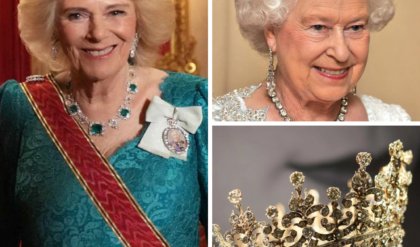Is Bill Gates a wolf in sheep’s clothing, or did he have a conversion experience after 1998, when the United States sued Microsoft for violating the Sherman Antitrust Act?
Chapter 45 of our book—The Courage to Face COVID-19: Preventing Hospitalization and Death While Battling the Bio-Pharmaceutical Complex—details the vast influence of Bill Gates over international public health policy. The chapter begins with a review of Gates’s 2010 TED Talk about what is required to reduce CO2 emissions. He began by addressing the the factor of world population.
First, we’ve got population. The world today has 6.8 billion people. That’s headed up to about 9 billion. Now if we do a really great job on new vaccines, healthcare, reproductive health services, we could lower that by perhaps ten or fifteen percent.
It is difficult if not impossible to understand how vaccines—which are supposed to prevent people from dying of infectious diseases—will help to reduce the world’s population. It is also notable that Gates linked vaccines not only to public health, but also to his other great project for humanity and planet earth—reducing carbon emissions.
In 2010, Gates proclaimed at the WEF’s annual meeting in Davos, “We must make this the decade of vaccines.” To pursue this objective, his foundation collaborated with the WHO, UNICEF, and NIAID “to increase coordination across the international vaccine community and create a Global Vaccine Action Plan.” Nine years later—at the January 2019 WEF meeting in Davos—he announced his foundation’s return on the $10 billion it had invested in vaccine development.
“We feel there’s been over a 20-to-1 return, yielding $200 billion over those 20 or so years,” he told CNBC’s Betty Quick on Squawk Box. This was, as he’d written in an essay for the Wall Street Journal the week before, “The Best Investment I’ve Ever Made.”
In January 2019, Gates was the patron saint of the Bio-Pharmaceutical Complex. His public image had come a long way since 1998, when the United States sued Microsoft for violating the Sherman Antitrust Act of 1898. The government successfully argued that Microsoft had abused its monopoly power with its operating system and web browser integration at the grave expense of several competitors. Gates’s videotaped deposition on August 27, 1998, was leaked to the public, and many remarked that it was a masterpiece of sullen arrogance and petulance. The video recordings “show a mogul who is incredulous that the government would dare to obstruct his route to world domination,” as Professor John Naughton wrote in an opinion for The Guardian. Gates was, it seemed, a man unaccustomed to being challenged by anyone.
Presiding U.S. District of Columbia, Judge Thomas Penfield Jackson, wrote of the defendant as follows:
Microsoft is a company with an institutional disdain for both the truth and for rules of law that lesser entities must respect. It is also a company whose senior management is not averse to offering specious testimony to support spurious defenses to claims of its wrongdoing.
At the time Judge Jackson wrote this opinion, it wasn’t controversial. In 1998, the 43-year-old year old Gates—the world’s richest man—was frequently compared to John D. Rockefeller, widely regarded as the most ruthless monopolist of all time. Reflecting on Judge Jackson’s opinion in a June 2000 essay, University of Illinois history professor Richard Jensen referred to Gates as “the new Rockefeller” for his strong-arming of PC companies “in order to squelch the competitive threat posed by Netscape.”
At about the same time Professor Jensen penned his essay, Gates founded the Bill & Melinda Gates Foundation. He modeled it after the Rockefeller Foundation, which was started by John D. Rockefeller Sr. and his son John D. Rockefeller Jr., along with their advisor, Frederick Taylor Gates (no relation to Bill) in 1913. In recent years the Gates and Rockefeller Foundations have collaborated on many international public health issues. In 2016, a major study of their activities was published by the independent Global Policy Forum. As the Guardian reported the study:
Using their immense wealth and influence with political and scientific elites, organisations like the Bill and Melinda Gates Foundation, the Rockefeller Foundation and others are promoting solutions to global problems that may undermine the UN and other international organisations, says the report …
“Through the sheer size of their grant-making, personal networking and active advocacy, large global foundations have played an increasingly active role in shaping the agenda-setting and funding priorities of international organisations and governments. … Through their multiple channels of influence, the Rockefeller and Gates foundations have been very successful in promoting their market-based and bio-medical approaches towards global health challenges in the research and health policy community—and beyond.”
In the same year that Bill Gates started his foundation, he invited NIAID Director Anthony Fauci to visit him at his $127 million mansion on Lake Washington. As Fauci later recalled the occasion:
“Melinda was showing everyone on a tour of the house. And he said, ‘Can I have some time with you in my library,’ this amazingly beautiful library. … And it was there that he said, ‘Tony, you run the biggest infectious disease institute of the world. And I want to be sure the money I spend is well spent. Why don’t we really get to know each other? Why don’t we be partners?’”
The partnership between Bill Gates and Anthony Fauci—along with their ally the Wellcome Trust—controls somewhere around 57% of global biomedical research funding.
The Gates Foundation also wields vast influence is the mass media. On August 21, 2020, the Columbia Journalism Review published long, meticulous report titled “Journalism’s Gates keepers.” The reporter, Tim Schwab, found $250 million of Gates Foundation grants to radio and television newsrooms (including $17.5 million to NPR alone) newspapers, journalism organizations, and advertising firms that create content. The Foundation has also given grants to the Poynter Institute and Gannett, whose PolitFact and USA Today fact checking departments have defended Gates from what they characterize as “false conspiracy theories” and “misinformation” about his influence over public health policy. As the author pointed out, “The full scope of Gates’s giving to the news media remains unknown because the foundation only publicly discloses money awarded through charitable grants, not through contracts.”
The Gates-Fauci partnership also works closely with major pharmaceutical companies, which have well-documented histories of suppressing old but effective generic drugs in order to promote new, commercially valuable medications. A 2017 article in the Harvard Business Review titled “How Pharma Companies Game the System to Keep Drugs Expensive” enumerated the tricks of the trade. This report derived much of its data from a 2016 study published in the Blood medical journal. Reviewing the industry’s influence in shaping public perceptions and policy, the authors wrote:
From 1998 to 2013, pharmaceutical lobbying interests were 42% larger than the second highest-paying industry (health insurance). The $2.7 billion effort … almost equaled the combined contributions of Big Oil ($1.3 billion) and the defense industry ($1.5 billion). An even greater financial commitment is made to advertising. The United States and New Zealand are the only 2 countries that allow prescription medications to be advertised on television. In 2012, nearly $3.5 billion was invested in the United States in pharmaceutical marketing. For every dollar spent on research, an average of >$2 (sometimes up to $19) is spent on marketing. Nine out of 10 large pharmaceutical companies spend more on marketing than on research and development.
This morning I saw an interview of Robert F. Kennedy Jr. posted on X in which he characterizes Bill Gates as a “Philanthro-Capitalist.” As he states:
I know most about Gates, you know, because I’ve written a book about him and that what he calls philanthro-capitalism, which is you use philanthropy to make yourself rich and you use it strategically and that’s what he’s done again and again. He’s gotten control of the World Health Organization so that they mandate vaccines all over the world and the companies that make those vaccines are, Gates’ and many of them the major shareholder.
And so and he did the same thing with the green revolution. He got a hold of the the regulatory agencies in African countries and forced them to take, to change the nature of agriculture. You know, there there’s there’s 20,000 generations of agriculture of of people being, growing, crops like sorghum and plantains and yucca and all these plants for subsistence. And he said, no. We’re gonna transfer them all to these, you know, GMO monocultures of corn, and then we’re gonna bring in, the companies that he owns Kraft, Coca Cola, McDonald’s, these big food companies, processing companies to buy that and that’s gonna be the deal. And then of course during COVID, all of that shut down and you had, you know, there’s 30,000,000 Africans now as a direct result of Gates’s policy who are now on the edge of starvation.
I think the the big the real tell was what happened with the DTP vaccine, which is diphtheria, tetanus, and pertussis. Because of Gates pushing this this shot, it’s now the number one vaccine in the world, DTP. And it’s mainly given in Africa. It was that particular shot is discontinued in the United States because it was killing 1 out of every killing or badly injuring 1 out of every 300 kids who took it. We ended it in Europe and the United States, but there’s Gates giving it to every kid in Africa.
And in 2017, he asked the Danish government for money to support this program and he said, we’ve saved we’ve saved 20,000,000 kids. The Danish government said, can you show us the data? He couldn’t. So the Danish government went and did its own study, and they had records of 30 years of this vaccine in a country called Guinea Bissau. And, they looked at the records and what they they realized in retrospect, which they were never seeing, is that the the girls who were getting that vaccine at 6 months of age were 10 times more likely to die over the next 6 months as children who didn’t get it. Wow. And they were dying of things that nobody on the ground had ever associated with vaccination. They were dying of anemia and bilharzia and malaria and dysentery, and, and, and nobody had ever had made the connection that it’s only the girls who got the vaccine who were dying of those things, that the other kids were much healthier.
And the Danish government had hired the retained the greatest, vaccine scientist all and were pro vaccine. A guy called Peter Aaby who’s like a deity in that space, and another guy called Soren Morgensen. And a whole team of scientists did that, and those scientists started speaking up and saying you got to discontinue this vaccine. And their careers, Gates made sure their careers were destroyed. So that’s when I understood that he actually understands what he is doing. And, you know, this is not just him being hypnotized. He knows that this is wrong because he’s this science was indisputable. And it really made me wonder about what his motivations are.
Why do you think? Is Gates a wolf in sheep’s clothing or has he merely placed too much faith in the efficacy and safety of vaccines as a primary public health tool?





